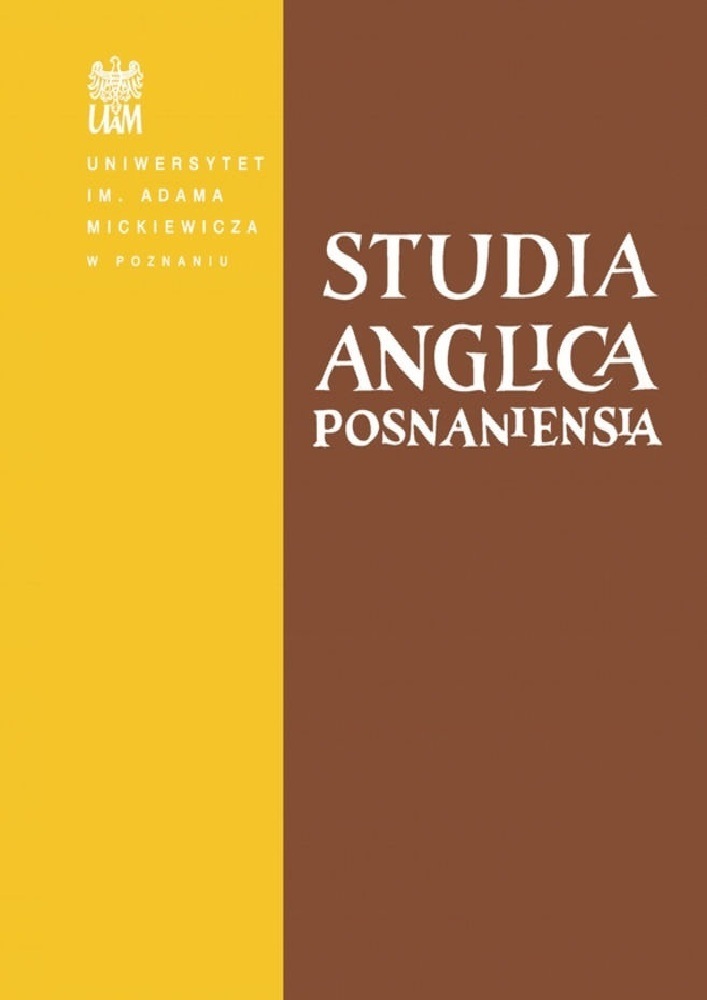Abstract
This paper is an investigation of the pronunciation patterns of English interdental fricatives by some Yoruba speakers of English at Obafemi Awolowo University (OAU), Ile-Ife. This was with a view to finding out the extent to which gender, the level of education, and the position in words of the interdental fricatives (i.e., the (th) variable as in think, pathetic, and path on the one hand, and the (dh) variable as in then, father, and clothe on the other hand) could affect the realisations of these two fricatives, otherwise known as (th) and (dh) variables. Data eventually used for this study were drawn from the reading performance of thirty-three informants who were of Yoruba origin. The thirty-three informants comprised 20 male and 13 female subjects with different levels of education ranging from undergraduate to doctoral. Our findings indicated that the (dh) variable was significantly affected by gender while the (th) variable was not. It was also demonstrated that while the (th) was significantly affected by the level of education of informants, the (dh) variable had no statistically significant association with the speakers’ level of education. Finally, the results of the study revealed that the position in a word (whether initial, medial, or final) of each of the variables affected the realisations of the two variables significantly. It was therefore concluded that sociolinguistic variables such as gender and the level of education were capable of affecting the rendition of linguistic variables significantly.
References
Akande, Akinmade T. 2004. The reinterpretation of the RP English monophthongs by Yoruba Speakers of English: An exploratory approach. M.A Research Report, The University of the Witwatersrand, Johannesburg.
Akande, Akinmade T. 2008. Investigating dialectal variation in the English of Nigerian university graduates: Methodology and pilot study. Studia Anglica Posnaniensia 44. 431–456.
Akande, Akinmade T. 2009. Some aspects of the pronunciation problems in the spoken English of some Nigerian undergraduates. Papers in English and Linguistics 10. 56–69.
Aladeyomi, S. A. & A. K. Adetunde. 2007. Errors of segmental phonemes in the spoken English of Nigerian English newscasters. Medwell Journal: The Social Sciences 2(3). 302–306.
Awonusi, Victor O. 1986. Regional accents and internal variability in Nigerian English: A historical analysis. English Studies 67(6). 555–560. DOI: 10.1080/00138388608598483
Bamgbose, Ayo. 1971. The English language in Nigeria. In John W. Spencer (ed.), The English language in West Africa, 35–48. London: Longman.
Banjo, Ayo. 1971. Towards a definition of Standard Nigerian Spoken English. In M. Houis (ed.), Actes du 8e Congress de la Société Linguistique de L'Afrique Occidental, 165–175. Abidjan: University of Abidjan.
Banjo, Ayo. 1979. Beyond intelligibility in Nigerian English. In Ebo Ubahakwe (ed.), Varieties and function of English in Nigeria, 7–13. Ibadan: African University Press.
Brosnahan, L. F. 1958. English in southern Nigeria. English Studies 39: 97–110. DOI: 10.1080/00138385808597010
Cruz-Ferreira, Madalena. 1987. Non-native interpretive strategies for intonational meaning: An experimental study. In Allan James & Jonathan Leather (eds.), Sound patterns in second language acquisition, 103–120. Dordrecht: Foris Publications.
Eka, David. 2000. Issues in Nigerian English usage. Uyo: Scholar Press Ltd.
Faleye, James. 2008. Morpho-phonological problems of primary school teachers of English in Ibadan. Ife Studies in English Language 7. 14–24.
Gut, Ulrike B. 2004. Nigerian English: Phonology. In Bernd Kortmann & Edgar W. Schneider (eds.), A handbook of varieties of English, 813–830. New York: Mouton de Gruyter. DOI: 10.1515/9783110175325.1.813
Herat, Manel. 2005. BE variation in Sri Lankan English. Language Variation and Change 17(2). 181–208. DOI: 10.1017/S0954394505050088
Jibril, Mohammed. 1982. Phonological variation in Nigerian spoken English. Unpublished Ph.D dissertation, University of Lancaster.
Josiah, Ubong. 2009. A synchronic analysis of assimilatory processes in educated Nigerian spoken English. Unpublished Ph.D dissertation, University of Ilorin.
Josiah, Ubong. 2011. Aspiration in Nigerian English: Controversies and challenges. In Inyang Udofot & Juliet Udoudom (eds.), English usage in Nigeria since 1842: Patterns and change. A festschrift for Prof. David Eka, 79–102. Uyo: Devconsort Services Ltd.
Josiah, Ubong, Helen Bodunde & Esther Robert. 2012. Patterns of English pronunciation among Nigerian undergraduates: Challenges and prospects. International Journal of Business, Humanities and Technology 2(6). 109–117.
Jowitt, David. 1991. Nigerian English usage: An introduction. Ibadan: Longman.
Labov, William. 1963. The social motivation of a sound change. Word 19(3). 273–309. DOI: 10.1080/00437956.1963.11659799
Labov, William. 1972. Sociolinguistic patterns. Philadelphia: University of Pennsylvania Press.
Labov, William. 1994. Principles of linguistic change. Oxford: Basil Blackwell.
Labov, William. 2006. The social stratification of English in New York City (2nd ed.). Cambridge: Cambridge University Press.
Mesthrie, Rajend. 1997. A sociolinguistic study of topicalisation phenomena in South African Black English. In Edgar W. Schneider (ed.), Englishes around the world: Studies in honour of Manfred Görlach. Vol. 2: Caribbean, Africa, Asia, Australasia, 119–140. Amsterdam: John Benjamins. DOI: 10.1075/veaw.g19.12mes
Soneye, Taiwo. 2008. CH digraph in English: Patterns and propositions for ESL pedagogy. Papers in English and Linguistics 9. 9–20.
Trudgill, Peter. 1974. The social differentiation of English in Norwich. Cambridge: Cambridge University Press.
Udofot, Inyang. 1997. The rhythm of spoken Nigerian English. Unpublished Ph.D dissertation, University of Uyo.
Udofot, Inyang. 2004. Varieties of spoken Nigerian English. In Segun Awonusi & E. A. Babalola (eds.), The domestication of English in Nigeria: A festschrift for Abiodun Adetugbo at 65, 93–113. Lagos: University of Lagos Press.
Udofot, Inyang. 2013. Features of spoken Nigerian English. In Akinmade T. Akande & Rotimi Taiwo (eds.), Contact linguistics in Africa and beyond, 61–74. New York: Nova Publishers.
Wagner, Suzanne E. 2008. Linguistic change and stabilization in the transition from adolescence to adulthood. Unpublished Ph.D. dissertation, University of Pennsylvania. https://msu.edu/~wagnersu/Papers/Wagner-2008-front.pdf
